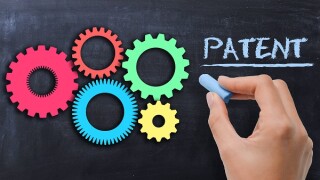Firm
As trade secret filings rise due to AI development and economic espionage concerns, firms are relying on proactive counselling to help clients navigate disputes
IP firm leaders share why they remain positive in the face of falling patent applications from US filers, and how they are meeting a rising demand from China
Mathew Lucas has joined Pearce IP after spending more than 25 years at Qantm IP-owned firm Davies Collison Cave
Abigail Wise shares her unusual pathway into the profession, from failing A-levels to becoming Lewis Silkin’s first female IP partner
Sponsored
Sponsored
-
Sponsored by Smart & BiggarBrigide Mattar, Patrick Roszell and Lei Liu of Smart & Biggar outline advantages of Canada’s patent prosecution system and offer tips to avoid pitfalls
-
Sponsored by Basham Ringe y CorreaEduardo Kleinberg and Santiago Zubikarai Gonzalez Mariscal of Basham Ringe y Correa analyse the new Federal Law for the Protection of Industrial Property, examining the ways in which it affects damages and conciliation
-
Sponsored by Becerril, Coca & BecerrilJuan Carlos Amaro of Becerril Coca & Becerril analyses recent changes in Mexican trademark law, including those connected to warning labels on food items and those detailed in the new Mexican IP Law
-
Sponsored by DumontEdith Rivero and Victor Garrido of Dumont analyse provisions in the new Federal Law for the Protection of Industrial Property, including those relating to withdrawal of a priority claim, patentable subject matter, divisional applications, supplementary certificates and the Bolar exemption
-
Sponsored by OLIVARESMartha Celis of OLIVARES analyses the new Federal Law for the Protection of Industrial Property which makes modifications to the rules around partial non-use cancellation actions, partial nullity actions and damages
-
Sponsored by Beijing East IP近年、中国市場規模の継続的な成長、中国の知的財産保護環境の改善、人々の知的財産保護への意識の高まりに伴い、中国における特許・商標の出願件数と知的財産紛争は急速に増加している。企業は、大量の特許・商標出願件数がもたらす紛争リスクに対し、それらを見逃さず、積極的に対応する必要がある。また、安全な生産と運営活動を守るために、中国の知的財産保護の現状について理解を深め、知的財産制度を最大限に活用する必要がある。以下、知的財産レイアウト、知的財産紛争、法規制の推移の観点から、中国における特許・商標の出願と保護の現状及び動向について分析する。





















